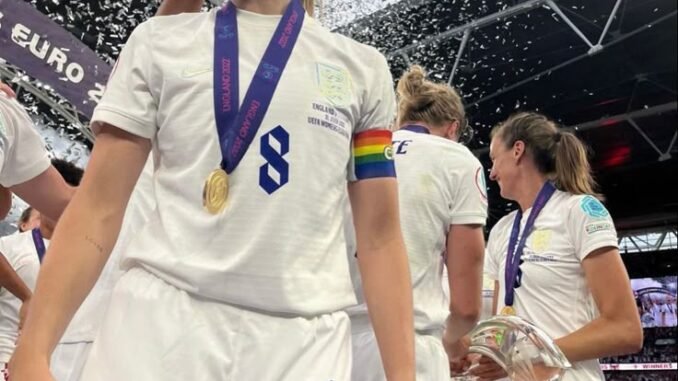
Leah Williamson’s crowning as Best Player of the Year at the recent Women’s World Cup marks a watershed moment not only for her own career but also for the broader landscape of women’s football. As captain of England’s Lionesses, Williamson combined tactical intelligence, unwavering composure and inspirational leadership to guide her team through the tournament’s fiercest challenges. Her recognition as the World Cup’s standout performer reflects not only her individual talents but also the collective spirit she helped forge—one rooted in resilience, unity and an unrelenting commitment to excellence on the pitch.
Born in Milton Keynes in 1997, Williamson joined Arsenal’s famed Hale End academy at the age of nine. Quickly distinguished by her reading of the game, positional versatility and calmness under pressure, she progressed through the youth ranks to make her senior debut in 2014. Originally fielded as a winger, she transitioned first to fullback and eventually to center back, where her ability to marshal a defensive line became invaluable. Beyond her defensive duties, Williamson is known for precise passing, timely interceptions and an uncanny knack for instilling confidence in teammates during high-stakes moments.
Williamson’s rise with the Lionesses has been equally rapid. First called up to the senior England squad in 2018, she featured prominently in the UEFA Women’s Euro 2022 triumph on home soil, earning plaudits for her tactical acumen and steadying presence at the back. When named England captain in late 2022, she inherited a responsibility that extended beyond organizing defenses: she became a unifying figure for a squad now recognized worldwide for both its collective strength and the way its members champion social causes off the field. Her advocacy for mental health awareness and equality in sport has only added to her stature as a role model.
At the Women’s World Cup itself, Williamson’s performances were nothing short of exemplary. In the group stage, she helped keep two clean sheets, breaking up attacks with well-timed tackles and distributing the ball with precision to launch counterattacks. In the knockout rounds, her leadership shone brightest. Against one of the tournament favorites in the quarterfinals, she scored a crucial headed goal from a corner kick—her first at a World Cup—demonstrating that her influence extends into the opposition’s box. In the semifinal and final, she marshaled a back line that conceded just one goal across both matches, earning plaudits from pundits for her flawless positioning and ability to anticipate threats.
The Best Player of the Year award—often considered the women’s equivalent of the Golden Ball—has previously honored luminaries such as Marta, Alex Morgan and Aitana Bonmatí. By placing Williamson’s name among these icons, the award committee highlights not only her defensive mastery but the evolving appreciation for players who lead through strategic insight and selfless teamwork rather than purely dazzling individual flair. It underscores a growing recognition in women’s football that the most impactful performances often come from those who balance consistency with an ability to shine in decisive moments.
Reactions to Williamson’s win have been overwhelmingly positive. England’s head coach praised her “unshakeable determination” and “ability to inspire everyone around her,” while former teammates celebrated her humility, recalling how she often stayed after training to mentor younger players. On social media, fans posted tributes sharing memories of Williamson’s iconic tackles, her trademark blonde braid snapping back as she sprinted upfield, and her impassioned speeches in the locker room following tight matches. Even rival players and coaches acknowledged that containing her game intelligence was as challenging as marking her physically.
Looking ahead, Williamson now faces the dual tasks of building on this individual accolade and sustaining England’s momentum on the world stage. With the 2025 UEFA Women’s Championship and the 2027 Women’s World Cup on the horizon, her leadership and experience will be vital in nurturing a new generation of talent and in cementing the Lionesses’ place among the global elite. Off the field, she is poised to continue her advocacy, leveraging her profile to campaign for greater investment in grassroots women’s football and for enhanced mental health resources for athletes.
Leah Williamson’s Best Player of the Year award thus represents more than personal triumph. It celebrates the rise of a leader who combines technical proficiency with emotional intelligence, a defender whose influence transcends stopping goals to building a culture of belief. In the annals of women’s football, her name will now stand not only as a symbol of excellence at the highest level but also as an inspiration for all young players who dare to dream of lifting the game to new heights.
Leave a Reply